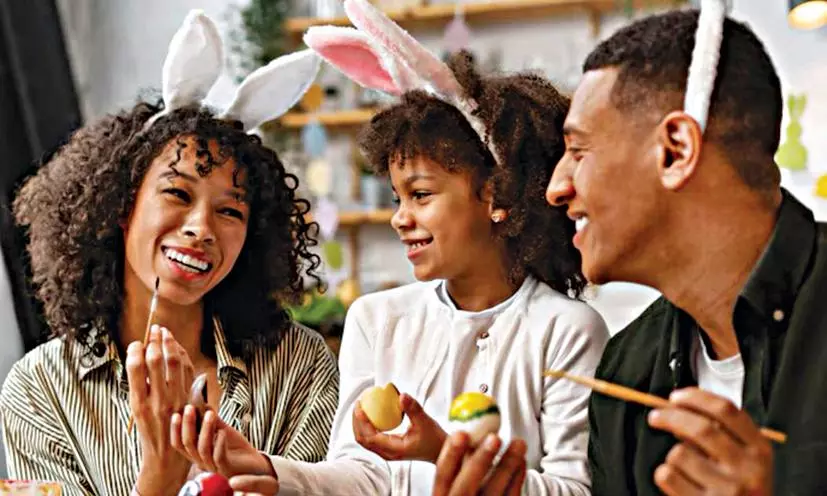Easter Gets a Desi Twist
The Easter feast in India is rooted in the fusion of faith and distinct desi food flavours

As spring breathes new life into the world, Christians across India prepare for one of the most important events on the religious calendar, Easter Sunday. While the spiritual significance of Easter remains the same worldwide, the celebrations in India are vibrantly distinct, shaped by the country's rich cultural diversity and, most notably, its love for flavourful food.
Easter in India is marked by a blend of church services, family gatherings, and tables overflowing with food that speaks to both global traditions and local palates. From spicy roasts in Kerala to coconut-infused sweets in Goa, the Easter feast in India is a fusion of faith and flavour. “Easter for us is not just about the resurrection of Christ, it's about togetherness, gratitude, and sharing love through food,” says Chef Roshan D’Silva, a Mangalorean home chef based in Mumbai, who is famous for Easter meals.
Easter Spice Trail
In Christian households, Holy Week is a time of solemnity and reflection, culminating in the joyous celebration of Easter Sunday. On this day, kitchens come alive with the sound of spices sizzling in hot oil, the aroma of freshly baked bread, and the sweet scent of coconut, cardamom, and jaggery wafting through the air. One of the standout dishes in many Indian Christian homes is Sorpotel, a spicy pork curry popular in Goa and Mangalore, slow-cooked with vinegar, garlic, and a mix of local spices. It’s usually served with sanna, a soft, steamed rice cake fermented with toddy or yeast.
“People always expect western dishes like ham and mashed potatoes on Easter, but in India, we spice things up,” says Chef D’Silva. “My table is incomplete without Sorpotel and a coconut-rich chicken roast. We also make *pathrade* — a colocasia leaf roll stuffed with spicy rice paste. It’s not traditionally Easter, but it’s ours.”
Gods Own Country
In Kerala, the Syrian Christian community celebrates with dishes like meen molee (a creamy coconut fish stew), appam (fermented rice pancakes), and a variety of roast meats. Each family adds their own twist, using age-old recipes handed down through generations. In addition to the savoury,
Easter also brings out India’s deep-rooted love for sweets. No Easter basket is complete without kulkuls, rose cookies, or marzipan shaped like eggs and chicks.
Baker Rakhee Krishan, says she prefers classics like hot cross buns, but with flavours that cater to Indian tastes. “My family loves fusion. This year, we’re making a spiced carrot and walnut cake with jaggery instead of sugar. Our Easter egg-shaped plum cakes have a touch of rum and a hint of garam masala.”
She also experiments with ingredients like ragi (finger millet) and coconut sugar for health-conscious clients. “Easter is special,” she adds. “It’s the one time when people really go out of their way to buy homemade cakes. It brings back childhood memories, church choirs, and that smell of freshly baked bread in grandma’s kitchen.”
Bonding Over Food
Despite regional variations, the heart of the Easter meal in India remains the same — community and celebration. In urban areas, Easter brunches at restaurants have become popular, often featuring a mix of global and Indian fare. But for many, it’s the homemade dishes that hold true meaning. “The cooking itself is a celebration,” says Chef D’Silva. Everyone helps out — kids decorate eggs, elders knead dough. That’s what makes it special.
In India, where festivals are as much about food as they are about faith, Easter stands out for its warmth, its spice, and its ability to blend the old with the new. Whether it’s a slice of semolina cake shared with neighbours or a slow-cooked mutton curry eaten with fingers, Easter here is a sensory celebration of resurrection — and of tradition rooted in flavour.

